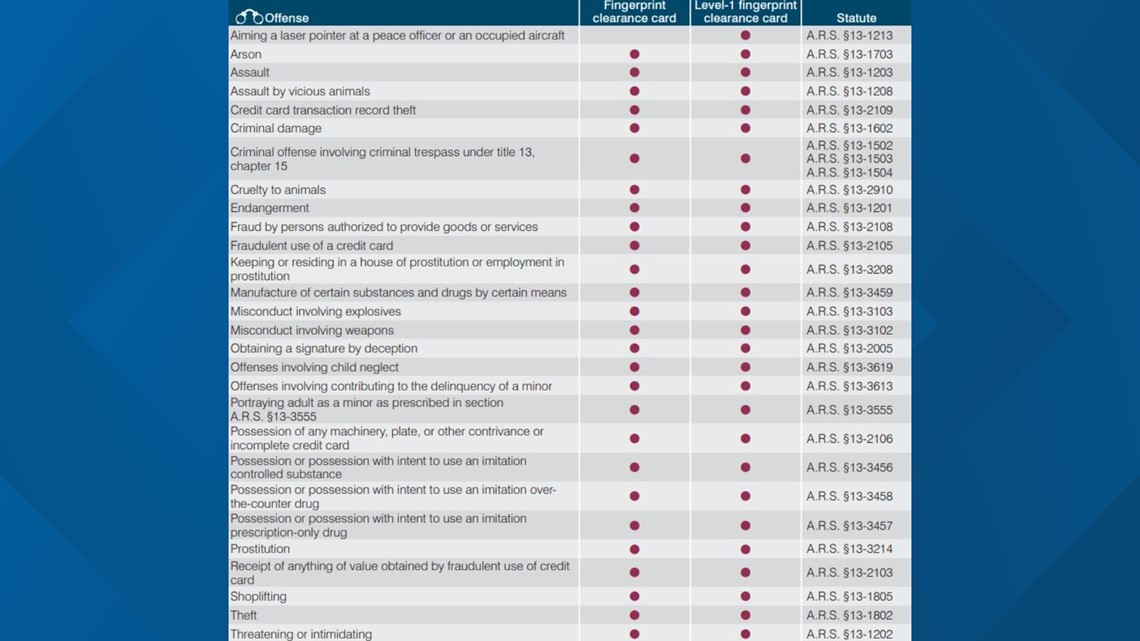PHOENIX — Arizona legislators have revised which crimes need to be reported to a statewide database after auditors discovered reporting gaps that could have potentially allowed offenders to obtain fingerprint clearance cards.
Senate Bill 1602 adds more misdemeanor offenses to the list of crimes that need to be reported to a repository managed by the Arizona Department of Public Safety that helps the agency conduct background checks.
Many professions, including teaching and bus driving, require applicants to apply for a fingerprint clearance card from DPS before they can start a job.
The cards are meant to signal an individual's clean criminal record but auditors have discovered Arizona had some holes in its statutes that could have allowed offenders to still receive a clearance card they shouldn't have gotten.
The Arizona Auditor General found last year that misdemeanor crimes involving arson, assault, endangerment, animal cruelty, and other offenses were not legally required to be reported to the DPS crime database.
"The Department could unknowingly issue and has not suspended some fingerprint clearance cards because statutes do not require at least 28 misdemeanor offenses that would preclude an individual from obtaining a fingerprint clearance card to be reported to and included in the central repository," auditors wrote in a report.
Existing laws had only required offenses involving sex crimes, DUIs, or domestic violence to be reported to the DPS database.
The 28 precluding misdemeanor offenses not being reported could still involve violent crimes, auditors noted, and needed to be added to the repository before background checks are conducted.
"The Department could unknowingly grant a fingerprint clearance card to individuals who work with vulnerable populations but have been convicted of precluding offenses that have not been reported to the central repository," auditors wrote in their report.


SB 1602 adds the following offenses to those that need to be submitted to the DPS database:
- Misdemeanor acts that preclude licensure as a private investigator
- Misdemeanor acts that preclude certification as an associate or employee of a private investigator.
- Misdemeanor acts that preclude licensure as a security guard
- Misdemeanor acts that preclude certification as a security guard agency associate, security guard, or armed security guard
- Offenses that preclude obtaining a standard fingerprint clearance card
- Offenses that preclude obtaining a level I fingerprint clearance card
Gov. Doug Ducey signed SB 1602 into law this week. The legislation's provisions will take effect on Jan. 1, 2023.
Up to Speed
Catch up on the latest news and stories on the 12 News YouTube channel. Subscribe today.

